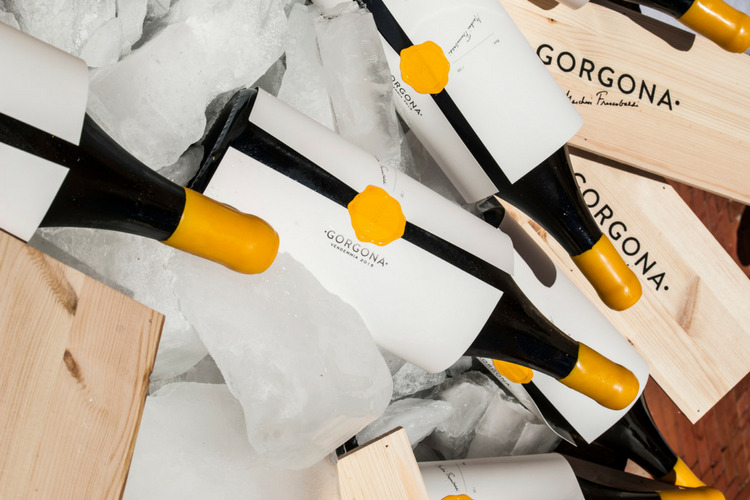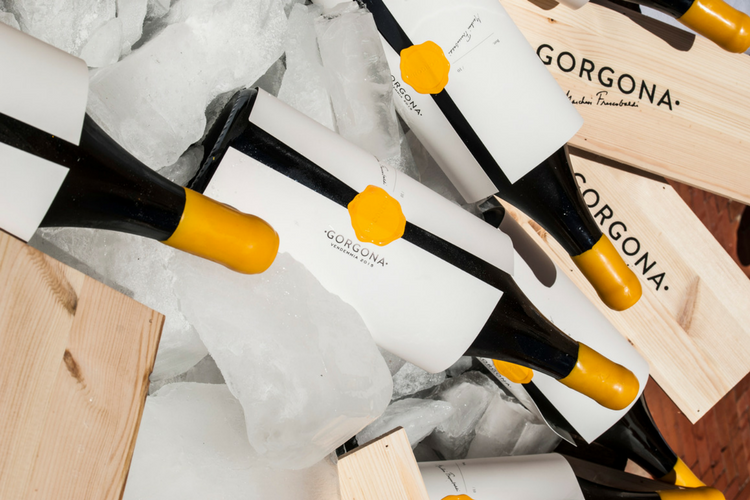Italian Prisoners Are Making One Of Their Country's Most Unusual Wines
In 2012, when Lamberto Frescobaldi became a partner with the Italian government to make a special wine using prison labor on the penal island of Gorgona — part of the Tuscan archipelago that includes Elba, where Napoleon sat under house arrest in 1814 — he realized that the task was going to be more arduous than most others that had faced his family business over its past 30 generations.
"Once, in July, 2015, while I was at Gorgona, I saw some grape clusters that had mildew," Frescobaldi says. "I knew we had to use sulfur quickly, and the best time to administer it was the next morning at dawn, the coldest time of the day. However, the inmate in charge told me that he couldn't do it. I asked, 'Why not?' 'Because at dawn we're still locked up in prison!' So I went to the policeman in charge, and he explained taking the tractor out that early was against the rules. But then he added, 'Let's put it this way — we may just happen to leave the door open.'"
Now, almost six years after Frescobaldi entered into what his company calls its "social causes initiative," the enterprise has completed five very successful vintages of Gorgona white wine, produced the first vintage of a red, and recently added a half acre of new vines to supplement the two-and-a-half acres of the original vineyard.
As both head of the Frescobaldi family business and overseer of the Gorgona project, Frescobaldi was in New York City recently to discuss what has become his favorite project — one that not only produces a distinct wine, but that also provides his main wineries with trained field and cellar workers once they have left their prison cells and started on the road to rehabilitation.
Other than the odd arrangement of making wine on a small island that juts out of the Mediterranean a 90-minute boat ride west of Livorno and whose main purpose is to house offenders, Frescobaldi says grape growing on Gorgona presents its own set of viticultural challenges. "The vineyard was planted facing east, and the climate is very hot there," he says. "But the big challenge is the wind, especially in May and in August. It can crack the canes, and the salt from the sea sometimes burns the leaves."
The white wine produced there — simply called Gorgona — is made from a combination of vermentino, a white variety that is of growing importance in both Italy and France (where it is also known as rolle), and a native variety called ansonica, a grape that has seldom gotten praise. "When I was growing up," jokes Frescobaldi, "we would have used its juice to clean tables."
But the blend works. As Frescobaldi presides over a rare vertical tasting of these first five vintages, the common characteristics of the blends come out: good fruitiness at first, a hint of eucalyptus perhaps, then some notes of cream followed by a crisp finish. The juice is fermented mostly in stainless steel tanks, with a bit in barrels. "Then we ship it in barrels to the mainland — the way they used to ship Bordeaux — cool it, then bottle it." The wine sells for about $100 a bottle.
Frescobaldi also brought with him the first vintage of Gorgona red, made from sangiovese, the premier Tuscan grape, and an uncommon variety called vermentino rosso. It was aged in terra cotta jars, partly as an experiment, partly because that was the only vessel available. Its taste is typically Tuscan, offering cherry and mulberry flavors with medium weight, a little creaminess, and a somewhat crisp finish. There were 660 bottles of the 2015 — which Frescobaldi calls "a damn good vintage" — but it is not yet sold in the U.S.
The labels are unique. They are large, and rather than being glued to the bottle, they are wrapped around it and secured with a waxy seal (quite easy to detach). Frescobaldi notes that he had in mind those special occasions when people are enjoying themselves and want to take off the label, sign it, and save it as a memento.
When Frescobaldi told his attorney that he wanted to employ prison inmates to make the wine, the attorney responded, "You're crazy. Then you would have to be responsible for them." Frescobaldi replied, "I have more than 500 people working for me. If I had to think about being responsible for each of them, I would never get out of bed."
Currently, there are about 95 inmates on Gorgona, 18 of whom work in the vineyards with one doing only cellar work. There is, Frescobaldi says, a growing list of prisoners from other institutions asking to be allowed to serve the final months of their terms on Gorgona. "For some of these men," he notes, "working in the vineyard for a prison wage is the first clean money that they have made in their lives."
We named another Tuscan producer with a centuries-long heritage as our 2016 Winery of the Year.

